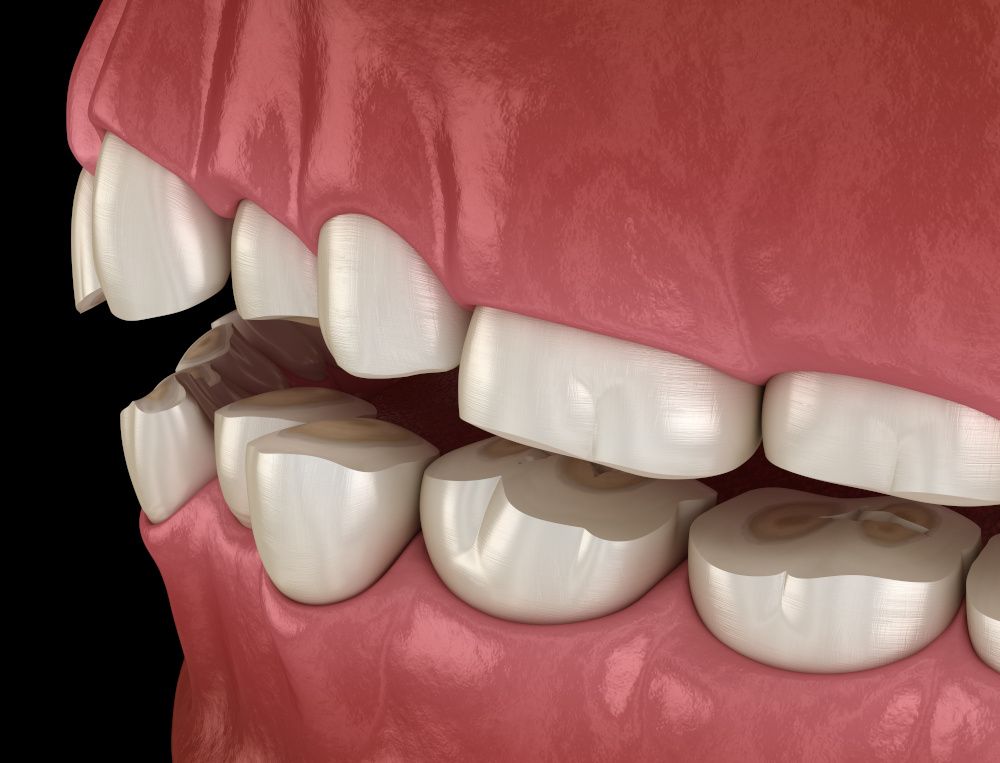Teeth grinding, commonly called “bruxism”, occurs when teeth rub together outside of chewing time. Both children and adults can suffer from this disorder, but it is more common in adults.
What causes bruxism?
The causes can vary from person to person, but bruxism is usually related to stress and anxiety. Misaligned or missing teeth could also be the cause of bruxism, so there are multiple factors.
It should be noted that some professionals believe that sleep apnea may be related to bruxism in some patients.
What are the symptoms of bruxism?
For most people, teeth grinding often occurs during sleep, but it can occur during the day during intense moments of stress. Nighttime bruxism will obviously be more difficult to control than daytime bruxism.
To know if a person is grinding their teeth at night, there is obviously the “noise” factor to consider, but sometimes the grinding is relatively quiet. Here are some of the symptoms related to bruxism:
- Pain in the jaw, face or teeth
- Headaches in the morning
- Earaches
- Abnormal wear of the teeth
- Teeth that are sensitive or appear to have shifted
- Sensitivity to cold or hot foods and drinks
If you have any of these symptoms and they persist for some time, it’s best to talk to your dentist.
Are there any consequences associated with bruxism?
In severe cases of bruxism, some patients may experience severe consequences. Here are just a few of them:
- Intense facial and jaw pain and migraines
- Premature wear of the teeth and enamel, which makes the teeth more fragile and vulnerable to cavities
- Breakage of crowns, fillings or dentures
- Interruption of spouse’s sleep due to noise
- Problems chewing
These are some of the consequences that should lead a person to consult a dentist at Santé dentaire VMR.
Are there any treatments?
If you have any of the symptoms listed above, please talk to your dentist who can investigate further and suggest a solution that’s right for you. Here are some of the solutions that are available:
- Treatment to align teeth or replace missing teeth
- Wearing a custom-made night guard that helps relax the jaw muscles and prevent contact with teeth
- Ways to avoid stressors or overwork
- Techniques to relax the jaw muscles during the day
There are other solutions as well, but it is important to first try to find out what is causing the bruxism before suggesting a solution. Only a dentist has the training and expertise to make a diagnosis and recommend treatment options.
If you need to book a consultation for teeth grinding problems or for any other issue, make an appointment now or check out the range of services offered by our team of professionals.


0 comments on “Teeth Grinding”